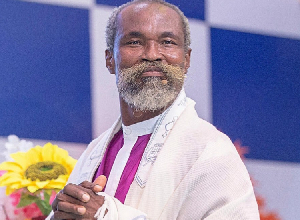The recent Parliamentary Select Committee on Public Account hearings revealed the rot in public institutions in the country. Although this is not the first time the Public Account Committee (PAC) undertook such an exercise, this year’s exercise attracted a lot of interest due its very “public” nature.
The architects of the 1992 Constitution intended that the chairman of the Public Account Committee should be from the minority. This to some extent allows for the chairman to discharge his functions without fear or favour.
The work of the PAC is very relevant as it seeks to keep close scrutiny of public funds. History shows that some people enter public life as an avenue for amassing private wealth. In Ghana when people assume positions in public life ,there are those who will warn “ if you do not become rich at this place then it means you would never become rich again in life”. Consciously or unconsciously we have placed a premium on riches at the expense of integrity.
Weak governmental and non-governmental organizations in the country to some extent have fuelled the notion that the shortest path to wealth is still through entering public office. Public institutions mandated by the 1992 Constitution to play a major role in confronting this menace are ill resourced or have less active in carrying their duty. The Commission of Human Rights and Administrative Justice (CHJRAJ) has practically been made into a toothless bull dog which can bark but not bite.
Some financial dealings have been uncovered by the committee. Examples of sectors where adverse findings were made include the National Health Insurance Scheme, Internal Revenue Service, Diplomatic Missions abroad, the Ministry of Tourism and the Diasporean Relations to mention but a few. One of the major highlights of the PAC sittings was the case of the IRS official who was found to have embezzled ¢ 4.3 billion. The hearings also exposed the incompetency of the AGs Department. One wonders if the case would have surfaced had it not been for the PAC hearing.
And do you remember that the docket of the alleged IRS official could not be traced at the AG’s Department. This brings to mind the plethora of cases in which dockets cannot be traced either at the AG’s department or at the courts. Can’t we do any thing to secure the safety of all dockets?
The perceived corruption in the public offices in the country can be largely minimized if the Financial Administration Act, Procurement Act and Internal Audit Agency Acts are implemented. So far one wonders why for nearly four years since the Financial Administration Act was passed, the Chief Justice has not established the Financial Administration Tribunal (FAT) as directed by the law. Someone has said that if any public official goes “fat” with public funds, he must be allowed to face the FAT (Financial Administration Tribunal).
THE WAY FORWARD
Public funds belong to the general public. It is tax payers’ money. Public officials are keeping public funds in trust for the public citizens. When called to give account of how one has administered public funds, it should not be seen as a witch hunting exercise. The call by the Committee for Joint Action (CJA) that immediate prosecution and punishment of the officials identified in the Auditor General’s report to have mismanaged or misappropriated funds is not misplaced.
We need institutional reform. In addition, there should be better funding and empowerment of the accountability institutions established by our laws including the Commission on Human Rights and Administrative Justice and the Serious Fraud Office as well as measures to protect these agencies from executive interference.
The Financial Administration Tribunal has been on the drawing board for a long time. Ghanaians cannot wait any longer to see the design still on the mahogany drawing board. I think parliament should request the CJ to furnish them with the road map to establishing the “FAT” tribunal. The Attorney General and the Chief Justice must rise up from their dogmatic slumber. We are not only judged by our actions but also we are judged by our inactions. Procrastination is the thief of time they say. There is an invisible book of life that faithfully records our vigilance. We may cry passionately for time to pause in her passage but time is deaf to such pleas and rushes on.
Finally, there is a need for independent for prosecutors to take up issues when the AG seems not to be interested. We must know that government agencies alone cannot solve the problems. We believe in democracy and everybody and every institution whether public or private counts in this battle to rid our society of the corruption which is now become a national canker which is so aggressively eating away the fabric of national progress.



















